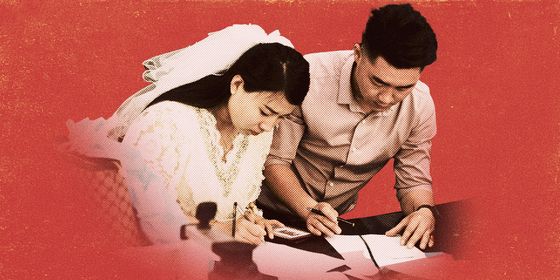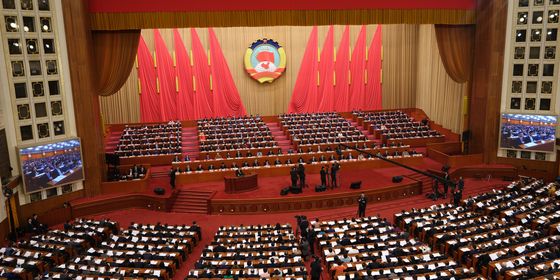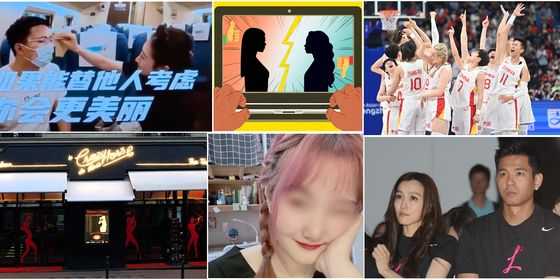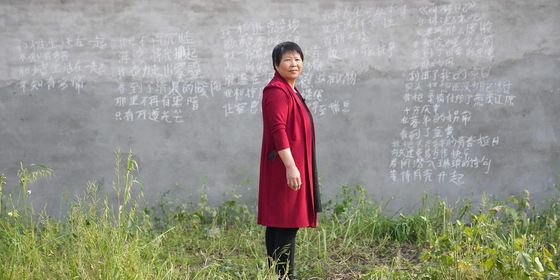Singles Day isn’t just about the sales
Choice Chengyu is a regular column, examining interesting, unique or newsworthy examples of chengyu—four-character idioms or proverbs, derived from historical and mythical events.
Chinese shoppers celebrated this year’s “Double Eleven” festival by spending a record 6.5 billion RMB on shopping site Tmall in just the first minute of November 11. But the midnight rush for the best deals (not to mention the chengyu to describe them) suggests the nation may have forgotten what “Single’s Day” was originally about—being single.
In fact, being single has rarely been seen as something to celebrate in China, as reflected in the many less-than-flattering terms for those without a partner: 光棍儿 (“bare branch”), 剩女 (“leftover woman”), and 单身狗 (“single dog”), to mention a few.
But this doesn’t mean that singledom is rare. According to the National Statistics Bureau’s annual China Statistical Yearbook, there were 240 million single Chinese at the end 2017. In its “2018 Single Report,” online dating platform Zhenai.com surveyed 6,131 of registered members and found that a majority of singles hoped to find a partner within six months, while another 29 percent would wait a year. Despite the rush, most still indicated strict requirements for their potential other half, with the wealth and income as the most important factor, followed by sharing common interests, then personality.
Although online matchmaking may be more popular today than relying on “父母之命,媒妁之言” (“arranged by parents and on a matchmakers words”) to find a match, traditional concerns when choosing a marriage partner are still relevant. Those traditions are contained in many still widely used idioms:
天作之合 A match made in heaven
From the Book of Songs (《诗经》), written over 2,500 years ago, this expression is used to wish a happy marriage to newlyweds. It can also refer to other important and fruitful relationships, like those between business partners.
Yours is a happy marriage predestined by God.
Nǐmen shì tiānzuòzhīhé de yī duì liángyuán.
你们是天作之合的一对良缘。
佳偶天成 An ideal marriage divinely arranged
This idiom first appeared in the “Marriage” Chapter of Youxue Qionglin (《幼学琼林》), a Ming dynasty (1368 – 1644) primary school textbook. The full sentence “良缘由夙缔,佳偶自天成” (“The relationship was foreordained in the past life, and an ideal marriage is divinely arranged”) expresses an even stronger feeling of predestination. The phrase can be also be used describe a well-matched couple in terms of intelligence, appearance, social status, and many other aspects.
才子佳人 Talented scholars and beautiful ladies
First used by Tang (618 – 907) poet Li Shangyin, this idiom was used to suggest the characteristics of ideal couples: talented men and good-looking women. The phrase 郎才女貌, with the same meaning, originated in the Yuan dynasty (1271 – 1368) and is more commonly used today:
A brilliant scholar and a beautiful lady, this couple is truly a heaven-made match.
Zhè yíduìr lángcái nǚmào, zhēnshi tiānzuòzhīhé.
这一对儿郎才女貌,真是天作之合。
门当户对 Matching social and family status
This chengyu comes from Yuan dynasty drama Romance of the Western Chamber (《西厢记》), one of ancient China’s most popular romantic comedies, and describes the matching family status of a couple, which in turn suggests that theirs is an appropriate union. 门当 (méndāng) and 户对 (hùduì) were decorations used to represent a family’s status and hung, respectively, on the bottom and top of gates in traditional Han buildings.
Traditional Chinese marriage is largely based on matching family status.
Chuántǒng de hūnyīn jiǎngjiù méndāng hùduì.
传统的婚姻讲究门当户对。
比翼双飞 A pair of birds flying wing-to-wing
Like 比翼鸟 (bǐyìniǎo), the legendary birds with only one wing that have to fly in pairs, a loving husband and wife are expected to never be far from each other. They rely and care for each other, as if their two hearts beat together as one.
两厢情愿 Both parties are willing
In modern times, personal choice plays a more important role in romantic relationships and marriage:
Marriage should be made by mutual consent.
Hūnyīn dàshì bìxū liǎngxiāng qíngyuàn.
婚姻大事必须两厢情愿。
Cover image from Pexels












